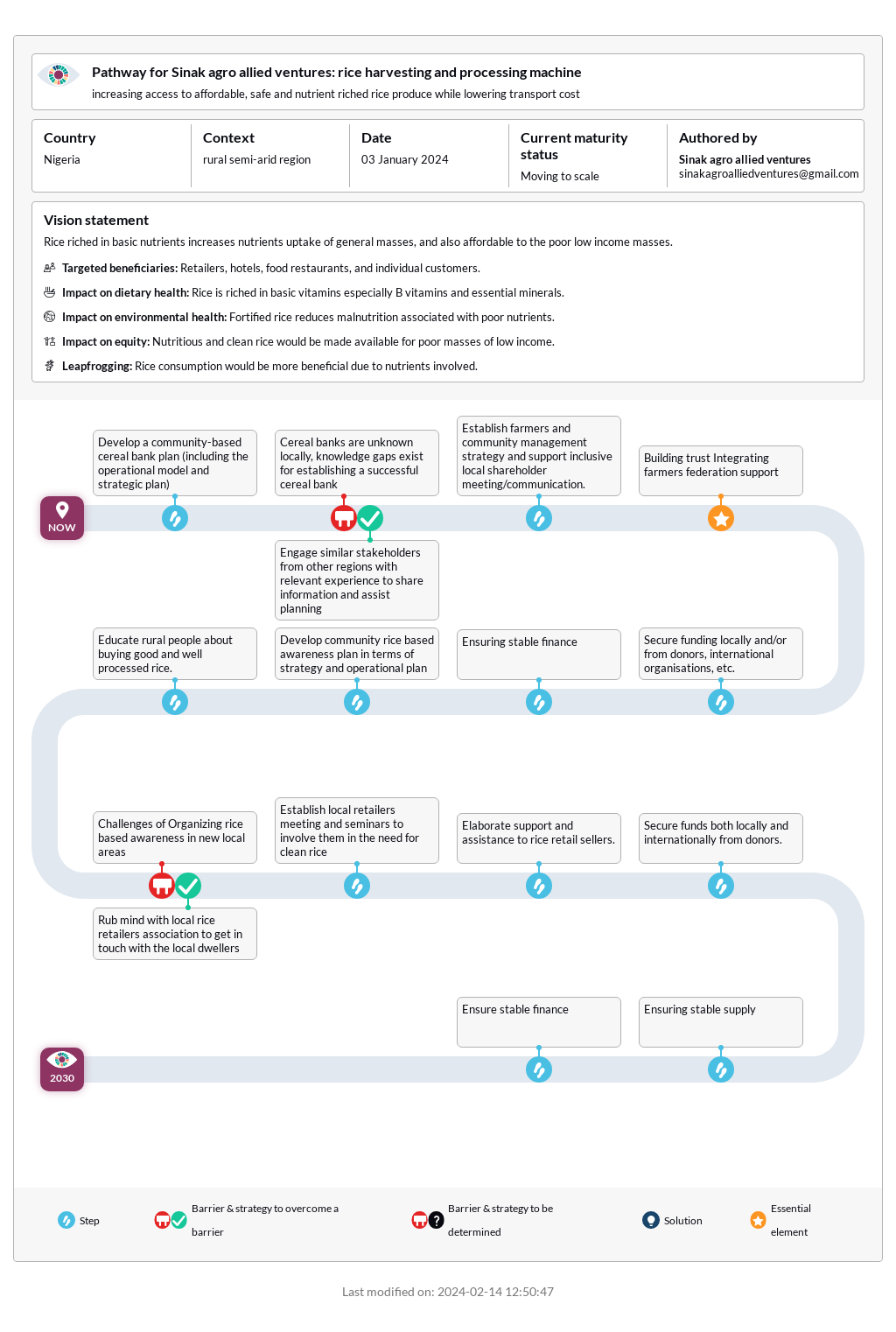
increasing access to affordable, safe and nutrient riched rice produce while lowering transport cost
Rice riched in basic nutrients increases nutrients uptake of general masses, and also affordable to the poor low income masses.
We hope that this “gallery of maps” for solutions in the portal will serve to inspire outside-of-the-box thinking and raise awareness around shared challenges and opportunities - as well as unique approaches - to reaching impact.
Of course, many possible “pathways” can exist for the same solution (even perhaps in the same setting), and we understand that many context-specific issues (barriers, enabling factors, political contexts, etc.) are not fixed in time, but dynamic by nature.

Rice riched in basic nutrients increases nutrients uptake of general masses, and also affordable to the poor low income masses.
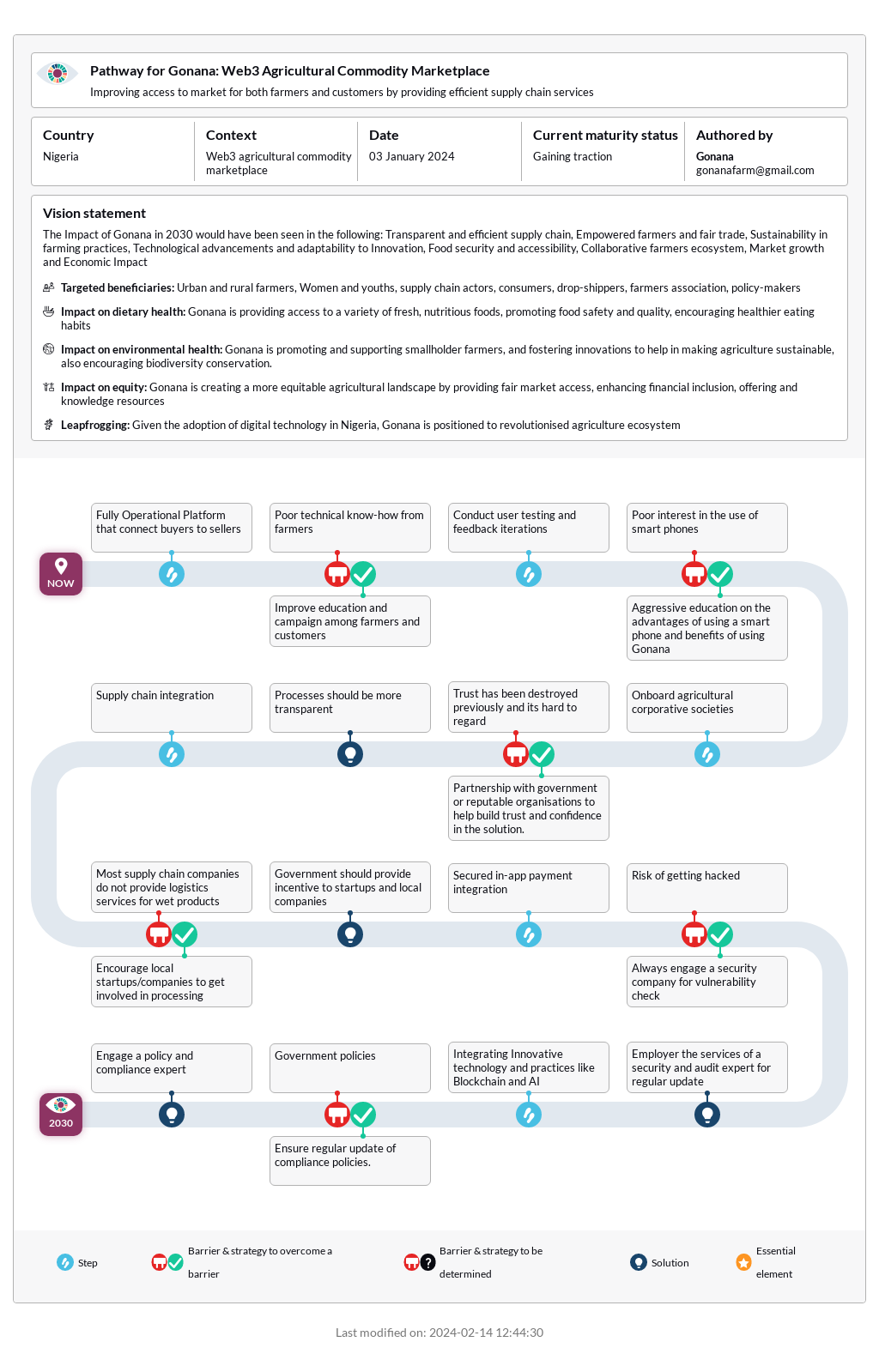
The Impact of Gonana in 2030 would have been seen in the following: Transparent and efficient supply chain, Empowered farmers and fair trade, Sustainability in farming practices, Technological advancements and adaptability to Innovation, Food security and accessibility, Collaborative farmers ecosystem, Market growth and Economic Impact

To revolutionize the agricultural sector by empowering farmers with sustainable and affordable solar-powered cold chain solutions to extend the shelf life of farm produce, eradicate food waste and preserve its nutritional value for consumers, to create a healthier and sustainable future for all.
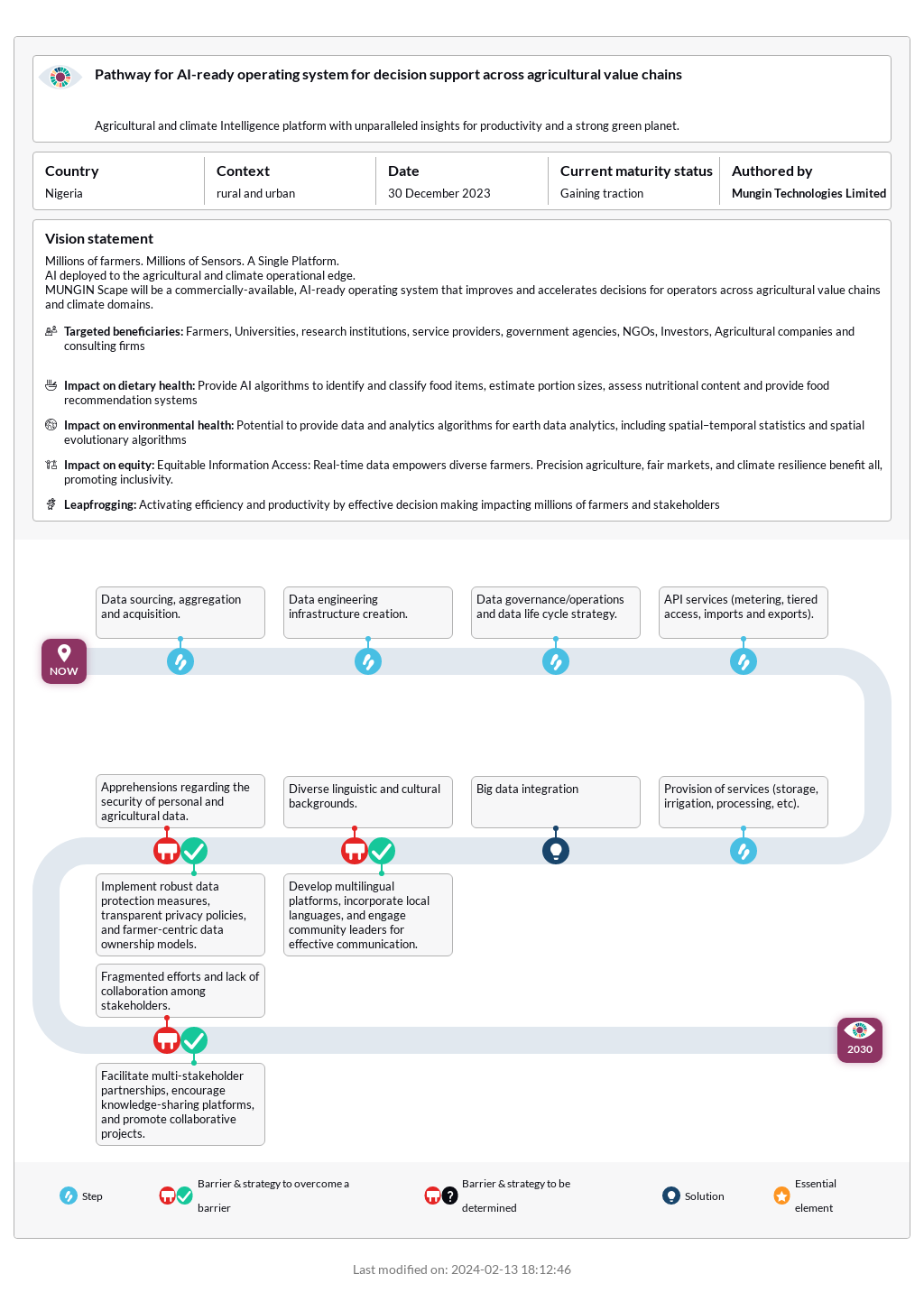
Millions of farmers. Millions of Sensors. A Single Platform. AI deployed to the agricultural and climate operational edge. MUNGIN Scape will be a commercially-available, AI-ready operating system that improves and accelerates decisions for operators across agricultural value chains and climate domains.
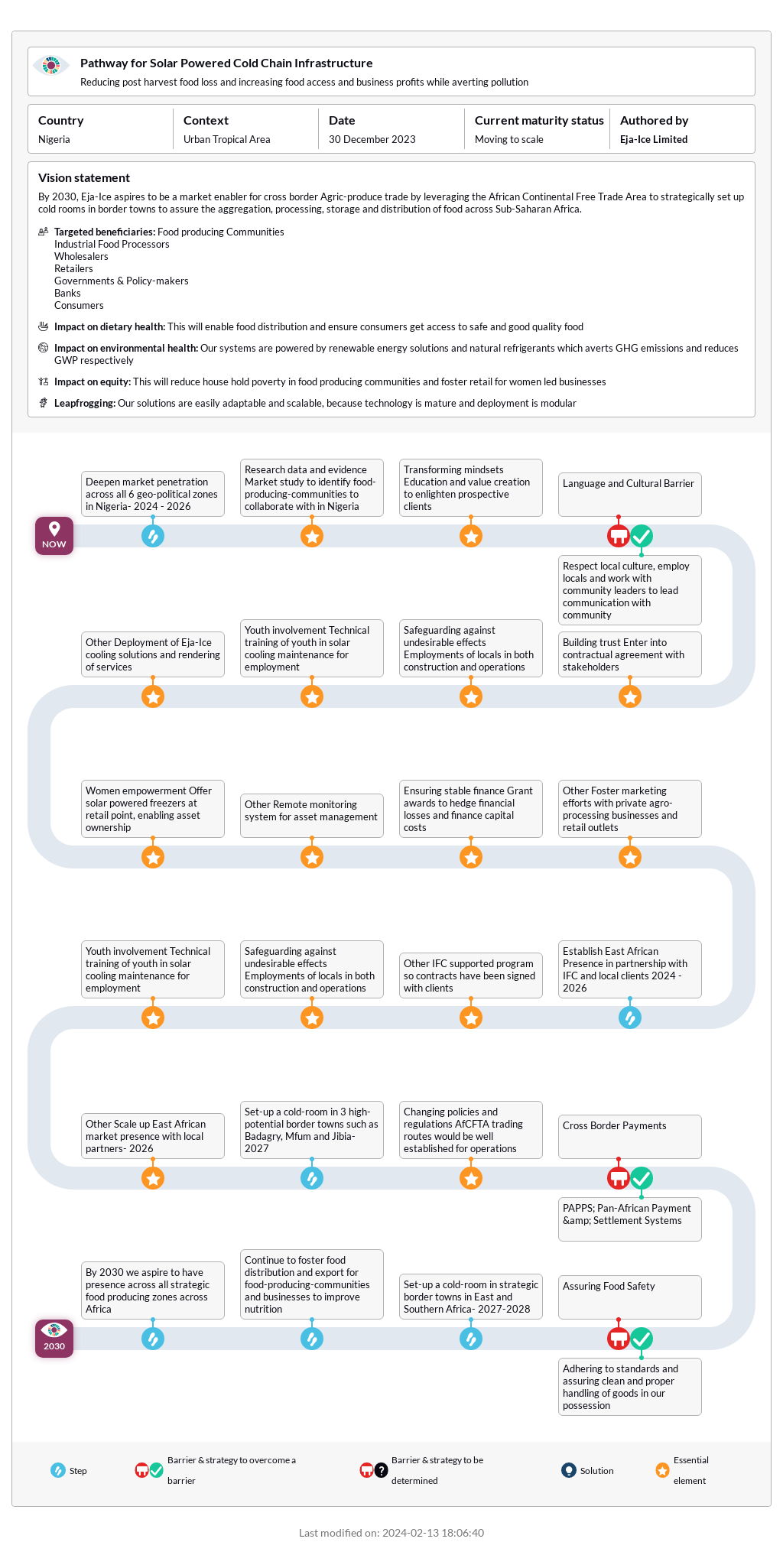
By 2030, Eja-Ice aspires to be a market enabler for cross border Agric-produce trade by leveraging the African Continental Free Trade Area to strategically set up cold rooms in border towns to assure the aggregation, processing, storage and distribution of food across Sub-Saharan Africa.
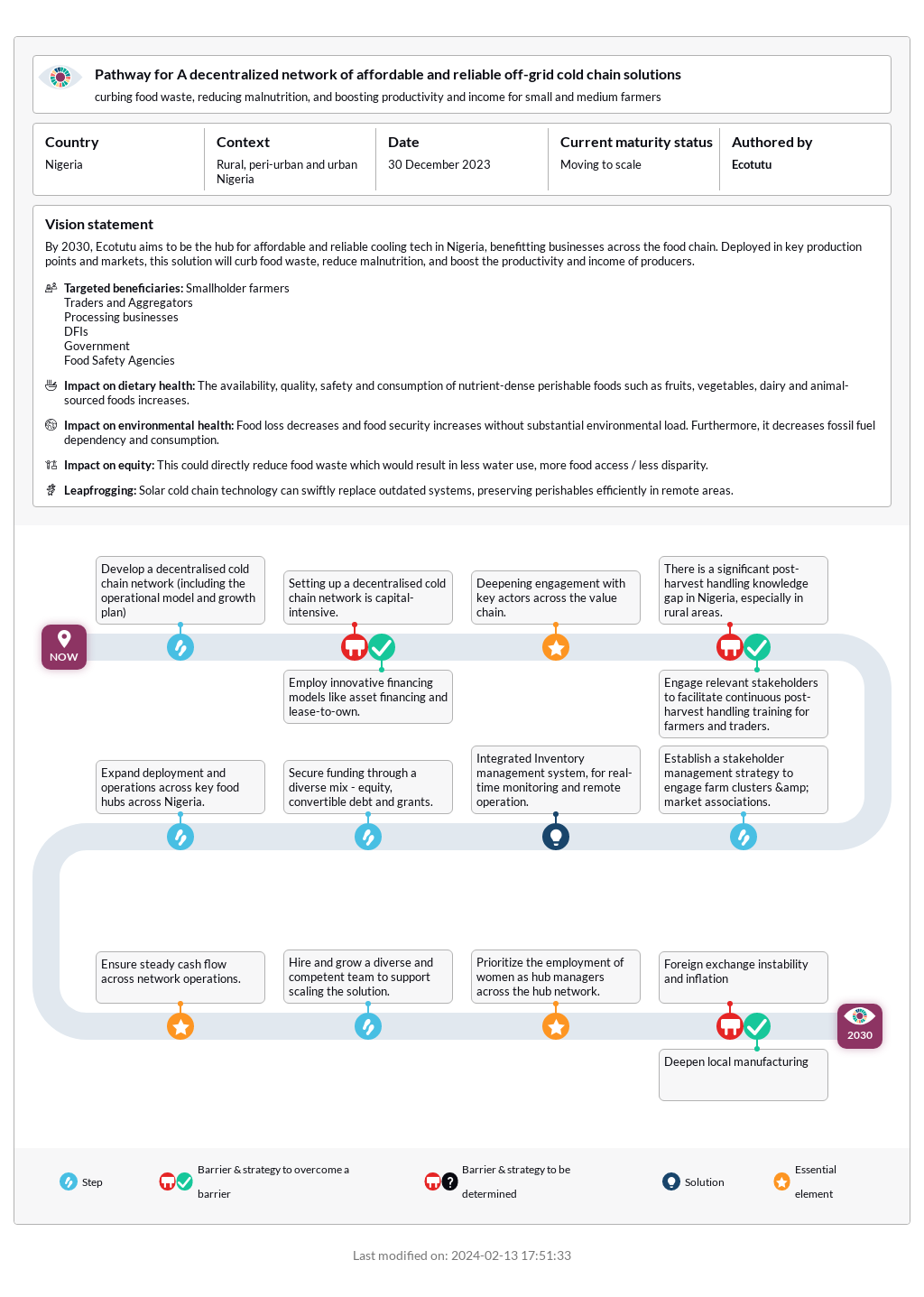
By 2030, Ecotutu aims to be the hub for affordable and reliable cooling tech in Nigeria, benefitting businesses across the food chain. Deployed in key production points and markets, this solution will curb food waste, reduce malnutrition, and boost the productivity and income of producers.
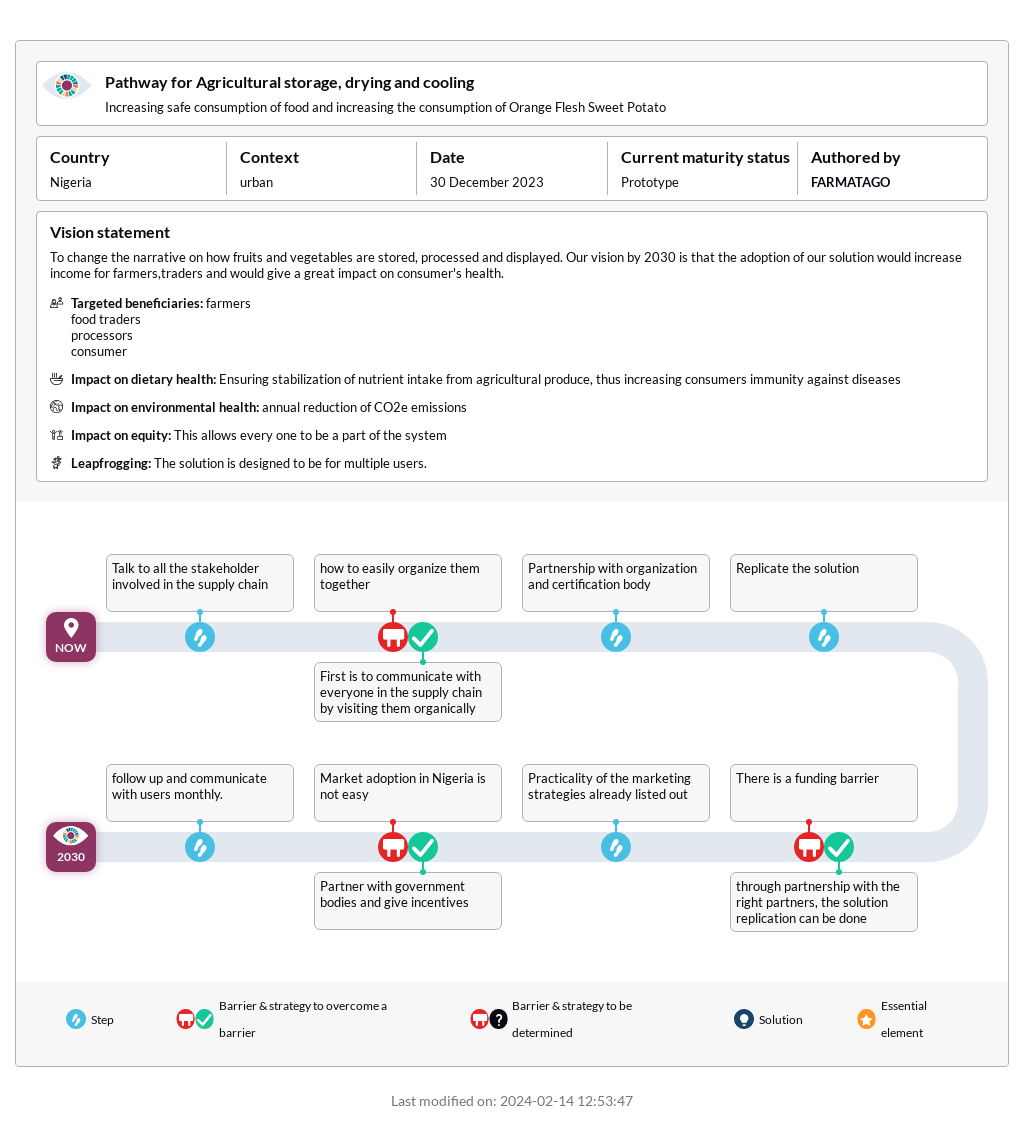
To change the narrative on how fruits and vegetables are stored, processed and displayed. Our vision by 2030 is that the adoption of our solution would increase income for farmers,traders and would give a great impact on consumer's health.
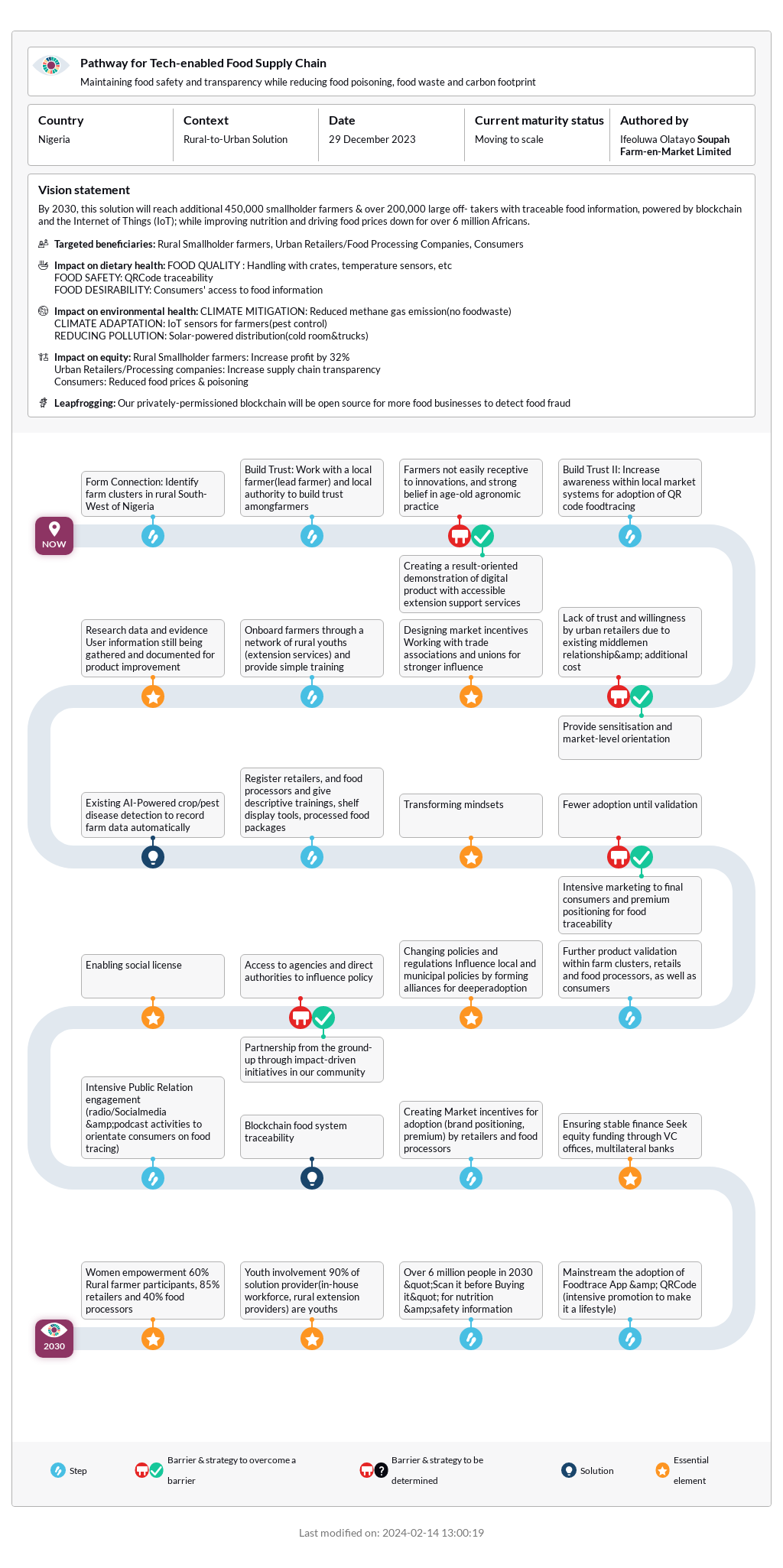
By 2030, this solution will reach additional 450,000 smallholder farmers & over 200,000 large off- takers with traceable food information, powered by blockchain and the Internet of Things (IoT); while improving nutrition and driving food prices down for over 6 million Africans.
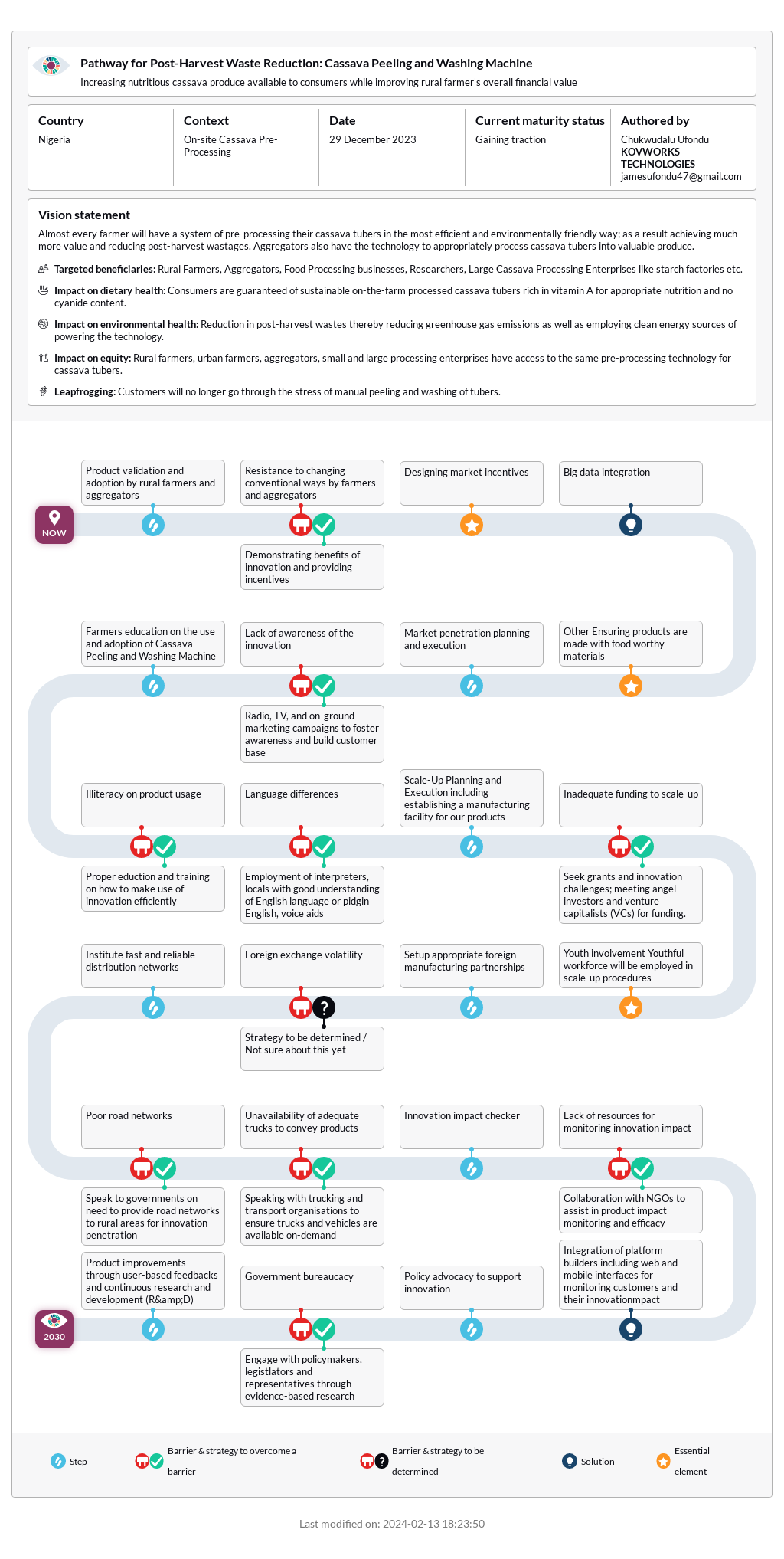
Almost every farmer will have a system of pre-processing their cassava tubers in the most efficient and environmentally friendly way; as a result achieving much more value and reducing post-harvest wastages. Aggregators also have the technology to appropriately process cassava tubers into valuable produce.
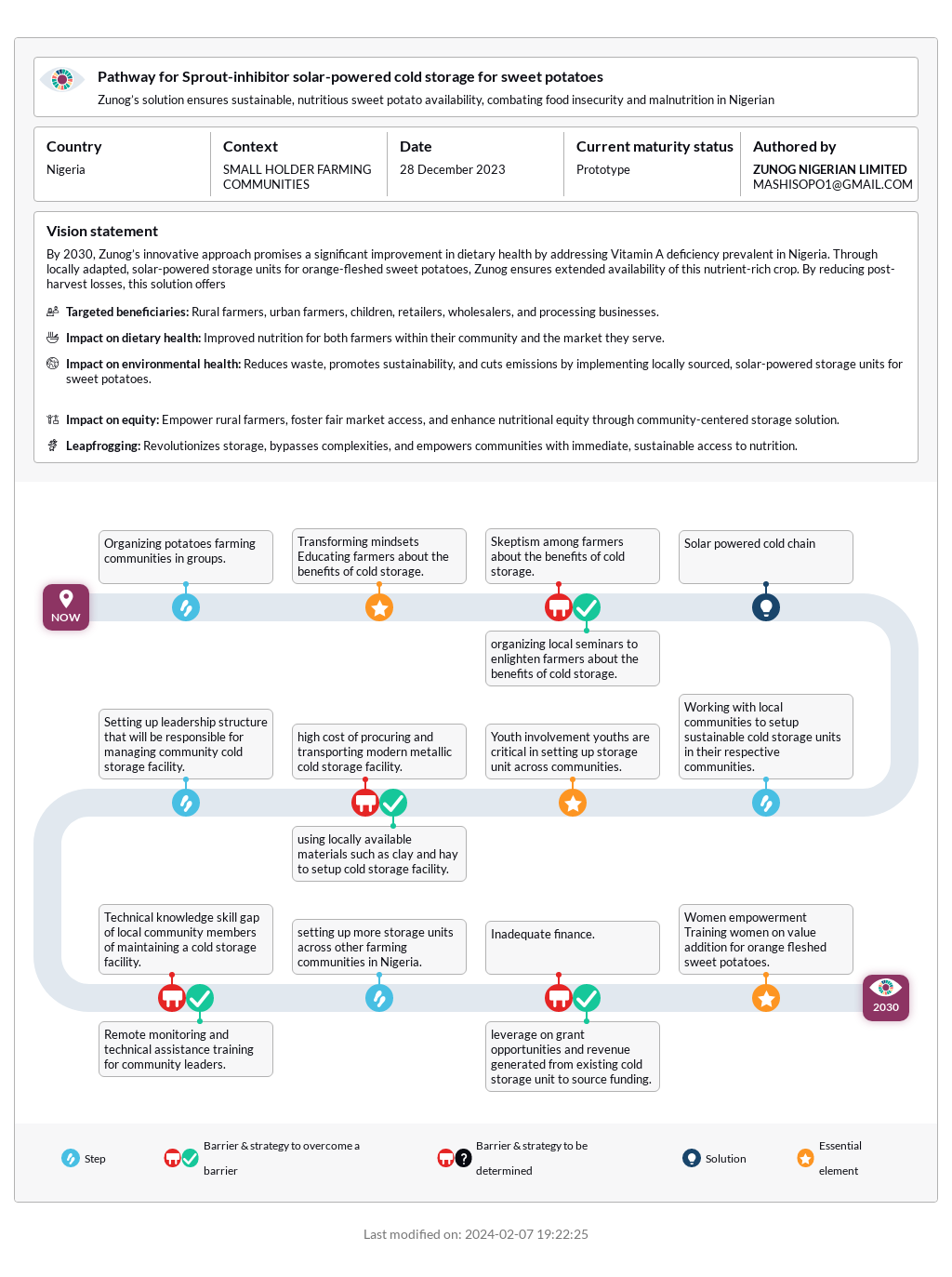
By 2030, Zunog’s innovative approach promises a significant improvement in dietary health by addressing Vitamin A deficiency prevalent in Nigeria. Through locally adapted, solar-powered storage units for orange-fleshed sweet potatoes, Zunog ensures extended availability of this nutrient-rich crop. By reducing post-harvest losses, this solution offers
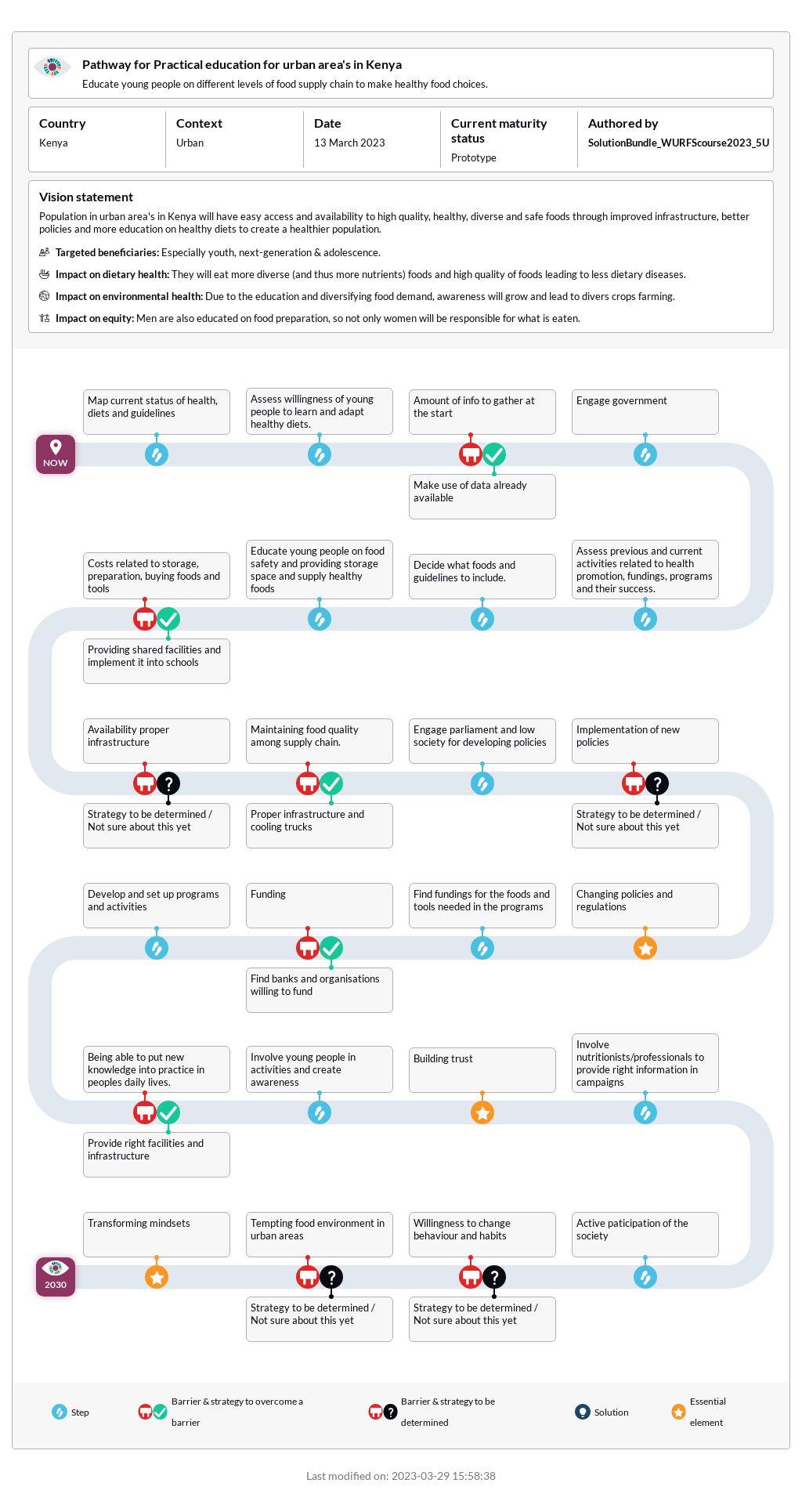
Population in urban area's in Kenya will have easy access and availability to high quality, healthy, diverse and safe foods through improved infrastructure, better policies and more education on healthy diets to create a healthier population.

By 2030 all the Machakos rural households will be able to afford healthy diets made accessible and available through sustainable methods of diversified crop production and consumption